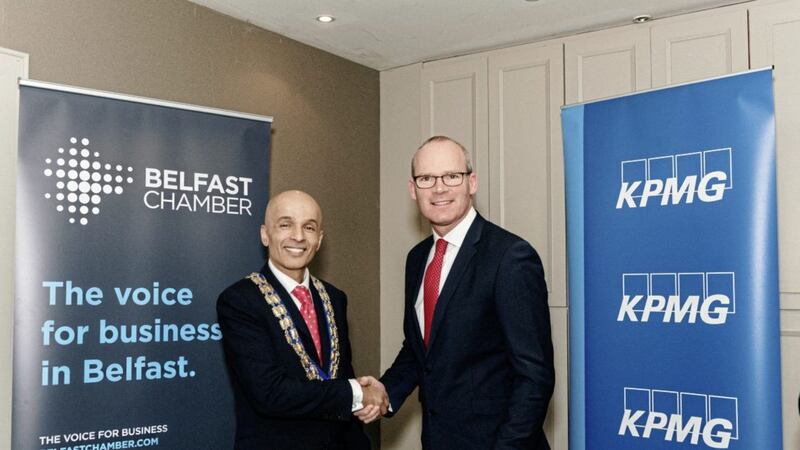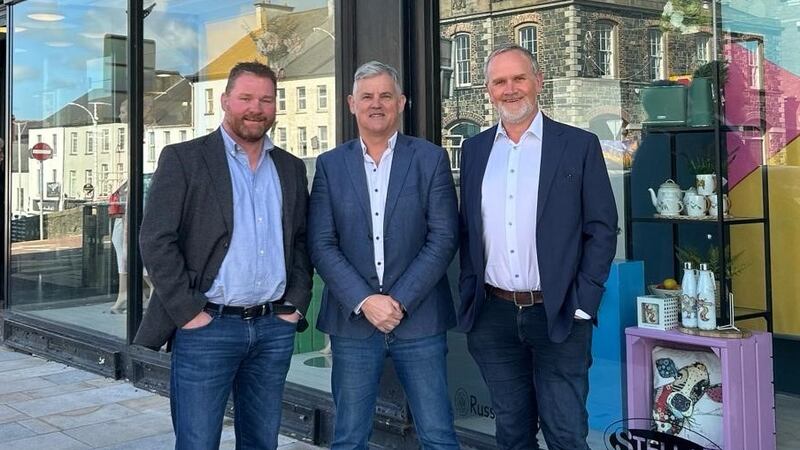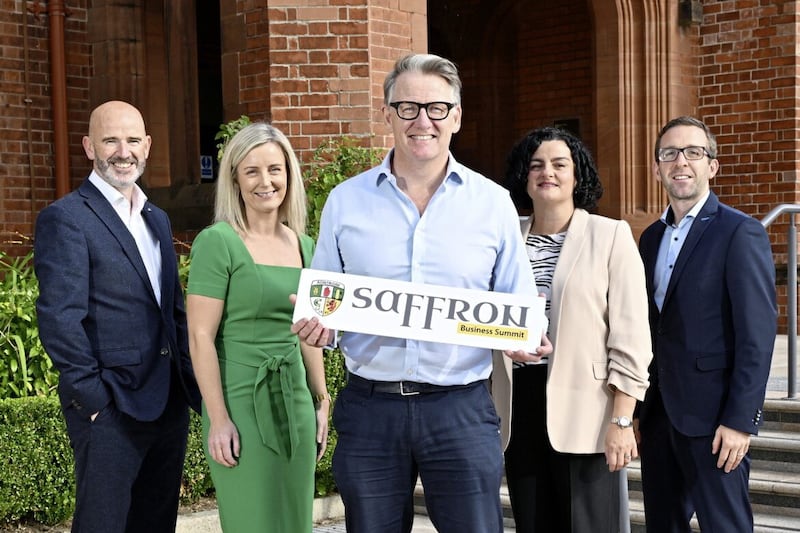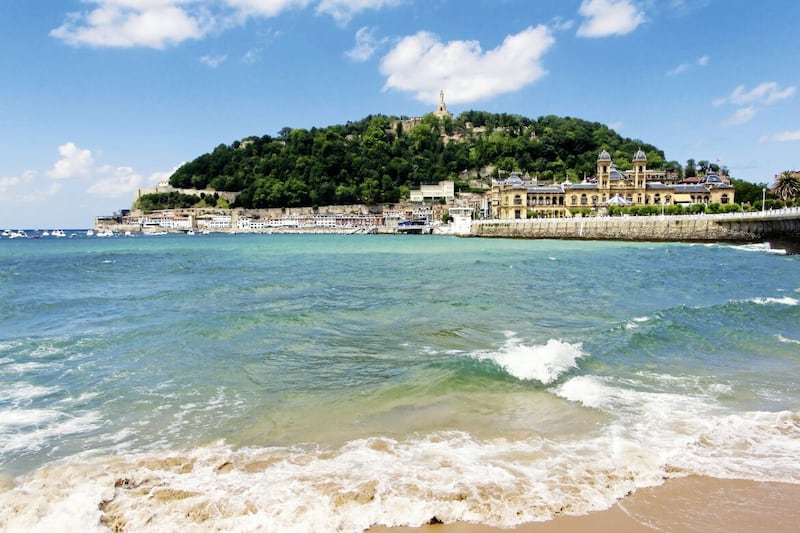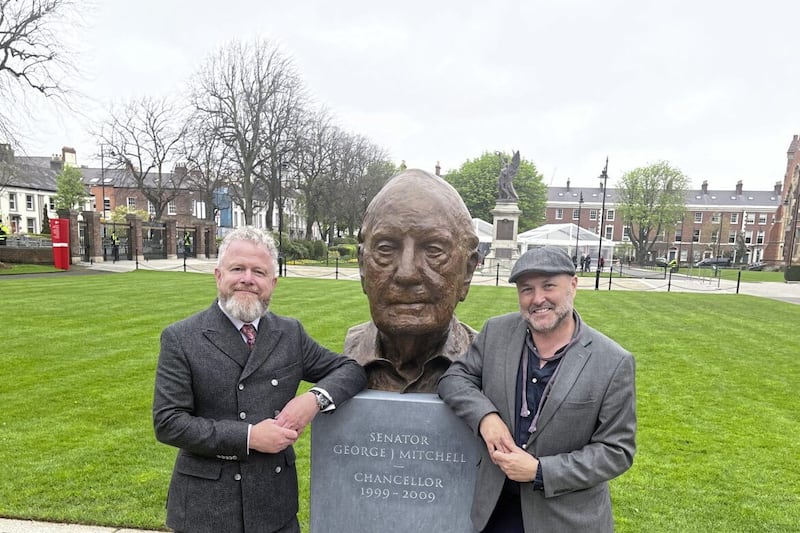WHILE the politics of this place have been pretty depressing for some time, one of the more unfortunate developments in recent months was the decision by Simon Hamilton, former DUP minister, to leave politics altogether.
Having said that, his decision to leave was marked by the announcement that he was taking up the role of chief executive of Belfast Chamber of Trade and Commerce.
In making the appointment, Belfast Chamber was putting a welcome and firm stake in the ground for the promotion of business in the city. The DUP’s loss (which they can ill-afford) was certainly Belfast’s gain. And while many of the readers of this column don’t live in Belfast, most know and appreciate the importance of a successful city driving the wider economy here.
Less than two months into his new role, you can see the positive effect Simon is having on the work of Belfast Chamber. Last week he and Chamber president Rajesh Rana, who has very effectively been driving the Chamber’s agenda forward and was responsible for Simon’s appointment, hostedt tanaiste Simon Coveney at a Belfast-Dublin Chamber lunch, an excellent event in the Crowne Plaza hotel attended by nearly 400 guests.
Dublin Chamber is an extremely strong organisation and its events are well attended and an important part of the business calendar there. Its president Niall Gibbons, no stranger to cross-border activity in his day job as chief executive of Tourism Ireland, gave an excellent speech promoting the opportunities which exist for Belfast and Dublin to prosper.
And then Simon Hamilton introduced Simon Coveney. There was a clear warmth between them and once again, as he has done every time I’ve heard him speak, Coveney gave an honest and well delivered speech. Most readers know of the Irish government’s position on Brexit, so I’ll not get into the detail of the speech here but for me, the big point from Coveney was the opportunity that this ‘deal’ (if it happens) will create for the economy here.
The tanaiste predicted that Irish companies could move north of the border such is the “extraordinary” competitive advantage the Brexit deal offers. He said the terms of the agreement between the UK and EU presented an “exciting and genuine opportunity” for prosperity.
“In time, when the politics of this settles down, business leaders will start to look at this for what it really is, which is an extraordinary business opportunity,” he said.
“I think there will be a huge incentive for a lot of Irish companies to locate north of the border and to effectively operate the rules of the single market but at the same time have unfettered access to the UK,” he said.
“I think business models will look at those opportunities and adapt to change over time,” though he added that many Irish businesses were raising questions over whether a “competitive advantage” for Northern Ireland had been deliberately designed into the agreement.
“I think that’s a legitimate enough question, but given the unique circumstances and pressure points of Northern Ireland through Brexit I think that’s what we should be doing,” he said.
Coveney also added: “Entrepreneurship is about seeing the opportunity others miss. Where others only see risk, business leaders such as yourselves see the accompanying reward.”
Good words, and if we’re thinking about business (all depressing politics aside), you have to be positive about the potential opportunity. And we don’t half need it, according to Danske Bank’s quarterly consumer confidence survey published today, which says our outlook is very negative and it’s falling further and further, with the index dropping from 136 to 131 in the last quarter. Danske Bank chief economist Conor Lambe says the latest quarterly fall in consumer confidence can be put down to the same old culprits – Brexit and the local political impasse.
So, if we can get a deal and then get some new investment from entrepreneurial Irish firms seeing a competitive advantage, greater economic activity and a more positive outlook to business may help us to lift ourselves out of the gloom. That in turn may assist with the politics, though it’s difficult to be hopeful, even with good men like Simon Coveney doing his best to be helpful.
The best thing business can do is just get on with it, push for an end to the Brexit uncertainty as quickly as possible and explore the opportunities on our respective doorsteps more thoroughly. And Belfast and Dublin Chambers working more closely together will certainly help with that.
:: Paul McErlean (paul@mcepublicrelations.com) is managing director of MCE Public Relations
:: Next week: Jamie Delargy
